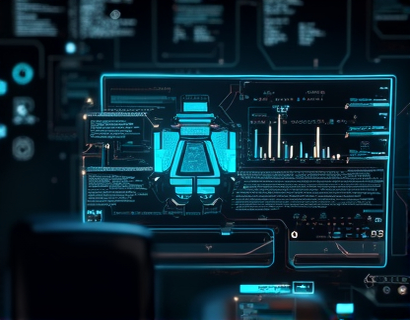Expert Logistics Insights: A Comprehensive Guide for All Audiences
In the intricate world of logistics, having access to verified and reliable knowledge is crucial for professionals, educators, students, and enthusiasts alike. The logistics industry, a backbone of global trade and commerce, involves the planning, execution, and control of the movement and storage of goods. This comprehensive guide aims to provide an in-depth understanding of logistics, tailored to meet the diverse needs of its audience. From logistics professionals seeking advanced insights to educators looking for educational resources, and from students eager to learn to parents wanting to understand the industry better, this article serves as a valuable resource.
Understanding Logistics: A Broad Overview
Logistics encompasses a wide range of activities, including supply chain management, inventory control, transportation, warehousing, and distribution. It is a multidisciplinary field that requires a blend of strategic planning, operational efficiency, and technological innovation. At its core, logistics aims to ensure that the right products are delivered to the right place at the right time, optimizing costs and enhancing customer satisfaction.
The importance of logistics cannot be overstated. In today's globalized economy, efficient logistics operations are vital for businesses to remain competitive. Delays, errors, or inefficiencies in the supply chain can lead to significant financial losses and damage to a company's reputation. Therefore, understanding the nuances of logistics is essential for anyone involved in the industry.
Logistics for Professionals: Advanced Insights
For logistics professionals, staying updated with the latest trends, technologies, and best practices is crucial. The industry is rapidly evolving, driven by advancements in automation, artificial intelligence, and data analytics. Professionals must continuously enhance their skills to manage complex supply chains, optimize routes, and implement sustainable practices.
One of the key areas of focus for logistics professionals is supply chain visibility. With the help of IoT devices and real-time tracking systems, companies can gain insights into the movement of goods across the entire supply chain. This visibility allows for better decision-making, risk management, and customer service. Additionally, the integration of AI and machine learning algorithms can predict demand, optimize inventory levels, and automate routine tasks, leading to increased efficiency and reduced costs.
Another critical aspect is the adoption of green logistics. As environmental concerns grow, companies are under pressure to reduce their carbon footprint. Implementing eco-friendly practices such as using electric vehicles, optimizing routes to minimize fuel consumption, and reducing packaging waste are becoming increasingly important. Professionals in the field must be knowledgeable about these sustainable practices to help their organizations meet regulatory requirements and consumer expectations.
Logistics Education: Resources for Students and Educators
For students and educators, accessing reliable and engaging logistics education resources is essential. The logistics industry offers a wide range of career opportunities, from supply chain managers and logistics coordinators to transportation planners and sustainability specialists. To prepare the next generation of logistics professionals, educational institutions must provide comprehensive curricula that cover both theoretical and practical aspects of the field.
Online platforms and educational websites play a significant role in providing logistics education. These platforms offer courses, webinars, and certifications that cater to different levels of expertise. For students, starting with the basics is important. Understanding the fundamental concepts of logistics, such as the supply chain process, transportation modes, and inventory management, lays the foundation for more advanced studies.
Educators can utilize a variety of resources to enhance their teaching. Textbooks and academic journals provide in-depth theoretical knowledge, while case studies and real-world examples help students apply concepts to practical scenarios. Interactive tools and simulations can also make learning more engaging and effective. For instance, logistics simulation software allows students to design and manage their own virtual supply chains, gaining hands-on experience in decision-making and problem-solving.
Child-Friendly Learning: Making Logistics Accessible to Young Minds
Introducing logistics to children and students at a young age can spark interest and curiosity in the field. However, it is essential to present the information in a way that is both educational and age-appropriate. A child-friendly version of logistics education ensures that young learners can explore the subject without feeling overwhelmed by complex terminology or concepts.
For younger audiences, starting with simple concepts such as the journey of a package from the store to their home can be an engaging entry point. Using storytelling and visual aids, such as diagrams and videos, can help explain how goods are transported and stored. Interactive activities, like building a mini supply chain with toys or creating a mock delivery route, can make learning fun and interactive.
As children grow older, the complexity of the content can increase. Introducing basic terms and concepts, such as supply and demand, transportation modes, and the role of warehouses, can lay the groundwork for more advanced studies. Educational games and apps designed with logistics themes can further enhance learning, making it both enjoyable and informative.
AI-Driven Chat Platforms: A New Era of Knowledge Access
The integration of AI technology in logistics education has opened new avenues for learning. AI-driven chat platforms offer a unique way for users to interact with specialized logistics content. These platforms use natural language processing to understand user queries and provide accurate, relevant information in real-time.
For professionals, these chat platforms can serve as a quick reference tool, answering specific questions about logistics operations, regulatory compliance, or industry trends. Educators can use these platforms to find lesson plans, teaching aids, and additional resources to enhance their curriculum. Students and parents can also benefit from these platforms, getting answers to their logistics-related questions in a user-friendly manner.
One of the key advantages of AI-driven chat platforms is their ability to provide personalized learning experiences. By analyzing user interactions, these platforms can recommend tailored content based on individual interests and knowledge levels. This personalized approach ensures that learners of all backgrounds can access information that is relevant and beneficial to them.
Content Verification: Ensuring Accuracy and Safety
In the digital age, the accuracy and safety of online content are paramount. Misinformation can lead to misunderstandings and poor decision-making, especially in a field as critical as logistics. Therefore, it is essential to ensure that the information provided through these platforms is verified and reliable.
The platform employs a rigorous content verification process, involving a team of experts who review and validate the information before it is published. This ensures that users, whether they are professionals, educators, or students, can trust the content they access. Additionally, the platform regularly updates its database to reflect the latest industry developments and regulatory changes.
For child-friendly content, safety is a top priority. The child-friendly version of the platform is designed with strict guidelines to ensure that the information is not only accurate but also appropriate for young learners. Content is reviewed by educators and child development experts to ensure it is both educational and safe.
Conclusion: Empowering All Audiences with Logistics Knowledge
In conclusion, logistics is a dynamic and essential industry that requires a well-informed workforce. Whether you are a professional looking to enhance your expertise, an educator seeking quality resources, a student eager to learn, or a parent wanting to understand the industry better, having access to verified and accessible logistics knowledge is invaluable. The integration of AI-driven chat platforms further enhances this access, providing personalized and reliable information to all audiences.
By fostering a deeper understanding of logistics, we can empower individuals to make informed decisions, drive innovation, and contribute to the growth and sustainability of the industry. As the world continues to evolve, the importance of logistics education will only increase, making it a field worth exploring and investing in.










































